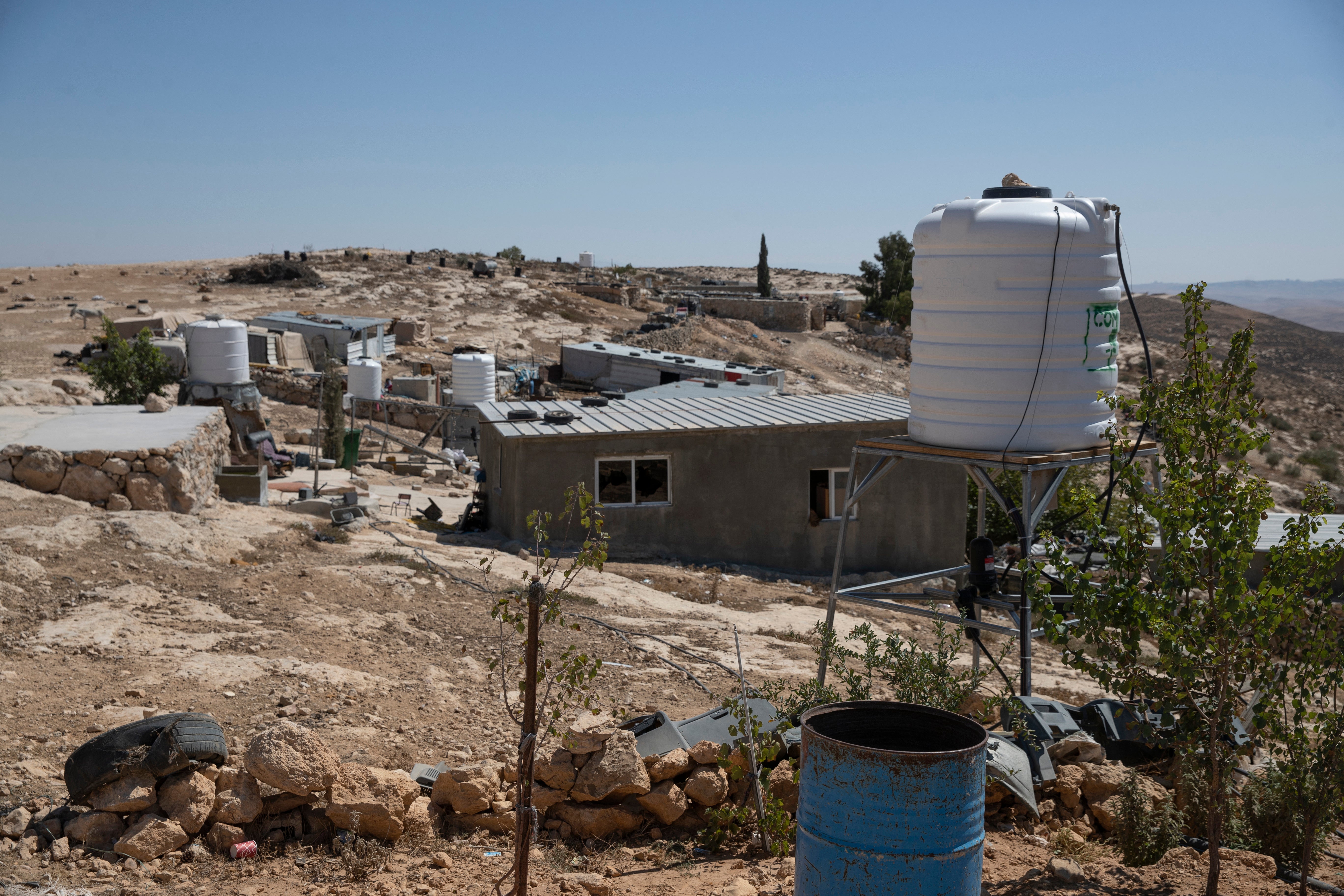Israel’s top court confirms eviction of 1,000 Palestinians in West Bank area
Israel has designated the area for military exercises

Your support helps us to tell the story
From reproductive rights to climate change to Big Tech, The Independent is on the ground when the story is developing. Whether it's investigating the financials of Elon Musk's pro-Trump PAC or producing our latest documentary, 'The A Word', which shines a light on the American women fighting for reproductive rights, we know how important it is to parse out the facts from the messaging.
At such a critical moment in US history, we need reporters on the ground. Your donation allows us to keep sending journalists to speak to both sides of the story.
The Independent is trusted by Americans across the entire political spectrum. And unlike many other quality news outlets, we choose not to lock Americans out of our reporting and analysis with paywalls. We believe quality journalism should be available to everyone, paid for by those who can afford it.
Your support makes all the difference.Israel's Supreme Court has rejected a petition against the eviction of more than 1,000 Palestinian inhabitants of a rural part of the occupied West Bank in an area which Israel has designated for military exercises.
After a two decades-long legal battle, the Supreme Court issued its ruling late on Wednesday, paving the way for the demolition of eight villages in a rocky, arid area near Hebron known to Palestinians as Masafer Yatta and to Israelis as the South Hebron Hills.
In its ruling, the court said it had found the Palestinian dwellers had not been permanent residents of the area when the Israeli military first declared it a firing zone in the 1980s.
Masafer Yatta residents keep a distinct, generations-long nomadic way of life, making a living from farming and herding. Israeli rights groups say that many of the Palestinian families have been permanently residing in the 3,000 hectares (7,400 acres) area since before Israel captured the West Bank in the 1967 Middle East War, and that their eviction would constitute a breach of international law.

“This proves that this court is part of the occupation,” said Nidal Abu Younis, Masafer Yatta mayor. “We are not going to leave our homes. We will stay here,” he said.
“The occupation court just decided: My community will be destroyed,” tweeted Basel Adra, a prominent activist from the area. “The army can now place us on trucks, 2,400 people, and expel us from our ancient villages, one by one.”
The court said the door was still open for the villagers to agree with the military on using parts of the land for agricultural purposes and urged the sides to seek a compromise.
The Association for Civil Rights in Israel (ACRI), who along with Masafer Yatta residents petitioned against the expulsion, said the verdict would have “unprecedented consequences”.
“Without warning in the middle of the night, the Israeli High Court of Justice published a verdict with unprecedented consequences,” the Association for Civil Rights in Israel, which has represented the residents throughout the process, said in a statement.
“The High Court has officially authorised leaving entire families, with their children and their elderly, without a roof over their heads,” ACRI said in a statement.
Roni Pelli, an attorney at the association, said the verdict is final and it’s not clear if there are any further legal steps that can be taken. The forcible displacement of the communities could happen at any time, she told the Associated Press.
Israeli prime minister Naftali Bennett is opposed to Palestinian statehood and routinely refers to the West Bank as Judea and Samaria, the biblical name of the region. He and other nationalist leaders view the West Bank as the historical heartland of the Jewish people.
The last serious peace talks between Israel and the Palestinians broke down more than a decade ago. Bennett's government has ruled out any major initiative to end the conflict but has taken steps to improve economic conditions for the Palestinians.
Three major human rights groups have said Israel's policies, particularly in the West Bank, amount to apartheid, allegations Israel vehemently rejects as an attack on its very legitimacy.
Join our commenting forum
Join thought-provoking conversations, follow other Independent readers and see their replies
Comments